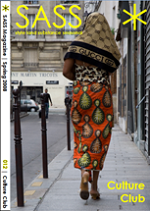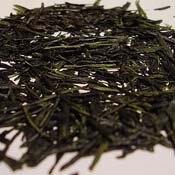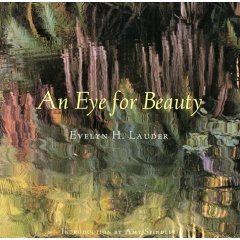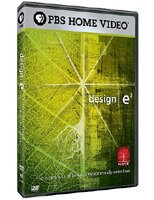From Sustainable Sean, originally posted on Opportunity Gardens...
Do you remember when you were a child and you had a favorite book or blanket that you took everywhere with you? You couldn't imagine going somewhere without it? Organic Kitchen Garden by Juliet Roberts, editor of BBC Gardens Illustrated, has become THAT BOOK for me. I picked it up on a whim at a local grocery store and I haven't been able to put it down since. I can't leave the house without it in my bag and it has been at the top of my stack of books by my bedside nightly. Certainly it was the combination of 'organic', 'kitchen', and 'garden' that caught my attention as these are three of my favorite things right now, but when I opened the book and started looking through the pages and pages of unique insights, helpful hints, and beautiful photos I'd found my favorite blanky all over again. With a setting like Audley End House in Essex, it should come as no surprise that the Roberts' work is a fairy tale dream come true for any gardener.
The book has bushels of great information and advice on organic gardening including a fantastic monthly calendar of activities. The photographs by Gavin Kingcome of the organic garden at Audley End are pastoral, idyllic, and completely alluring. One aspect of the photos that directly drew my interest was the traditional materials that were used in the garden. In our modern garden world of PVC piping and plastic pots, it was incredibly comforting to see terracotta forcing vessels and glass cloches. Perhaps it is a bit too quixotic to consider reviving these traditional tools and procedures, but they do bring a sense of romance and grace back to the garden that seems to be missing in our modern times. I could write so much more about this book but alas, I need to go thumb through the pictures again...I'm completely addicted.





 If you haven't run across
If you haven't run across  Reportedly used as medicine in China for over 4,000 years, much has been made of the health benefits of drinking green tea: it inhibits the growth of cancer cells; it lowers total cholesterol levels, as well as improving the ratio of good cholesterol to bad, and can even help prevent tooth decay! Not bad, but what do you do with the tea leaves when you're done drinking? Product Dose has put together a Recycled Tea Leaves Wiki with lots of good ideas and information about recycling and reusing spent tea leaves. From how to properly dry it for best use, to bathing and skin care applications, to cleaning and even rust prevention, there's a lot your old tea leaves can do for you. Find out more here, and if you've got other great ideas, leave 'em there for everyone else to discover. [Recycled Tea Wiki at Product Dose]
Reportedly used as medicine in China for over 4,000 years, much has been made of the health benefits of drinking green tea: it inhibits the growth of cancer cells; it lowers total cholesterol levels, as well as improving the ratio of good cholesterol to bad, and can even help prevent tooth decay! Not bad, but what do you do with the tea leaves when you're done drinking? Product Dose has put together a Recycled Tea Leaves Wiki with lots of good ideas and information about recycling and reusing spent tea leaves. From how to properly dry it for best use, to bathing and skin care applications, to cleaning and even rust prevention, there's a lot your old tea leaves can do for you. Find out more here, and if you've got other great ideas, leave 'em there for everyone else to discover. [Recycled Tea Wiki at Product Dose] Later on a trip to NYC in my role as Sustainable Business & Development at Nordstrom I got a chance to speak to several senior managers at Lauder on the topic as well. Again, very impressed with their knowledge and committment. The last thing I'll mention on Evelyn Lauder, she put together a beautiful book of nature photographs called "An Eye for Beauty". The photographs are truly stunning. It's good to know someone of Mrs. Lauder's position not only finds beauty and inspiration in nature but also understands key elements of the environmental challenges facing our world.
Later on a trip to NYC in my role as Sustainable Business & Development at Nordstrom I got a chance to speak to several senior managers at Lauder on the topic as well. Again, very impressed with their knowledge and committment. The last thing I'll mention on Evelyn Lauder, she put together a beautiful book of nature photographs called "An Eye for Beauty". The photographs are truly stunning. It's good to know someone of Mrs. Lauder's position not only finds beauty and inspiration in nature but also understands key elements of the environmental challenges facing our world. For anyone who missed the excellent series on PBS this summer, design: e2 is now available on DVD. Exploring the economies of being environmentally conscious, the series included six episodes (The Green Apple, Green for All, The Green Machine, Gray to Green, China from Green to Red and Deeper Shades of Green) and was narrated by Brad Pitt. From the design: e2 website: "Eight different topics - from sustainable architecture to water culture to alternative energy to organic farming to recycled clothing and more - are each presented in six thirty-minute episodes, challenging us to live smarter, live greener and live with the future in mind. DESIGN launches our e2 series and introduces us to the inventive leaders and technologies driving sustainable practices in the buildings where we live, work, and play. Through DESIGN, and future series - WATER, ENERGY, FOOD, TRANSPORTATION, BOTANICALS, TEXTILES, and HEALTH - e2 demonstrates that living in harmony with nature is not only a matter of progress; it's a matter of survival."
For anyone who missed the excellent series on PBS this summer, design: e2 is now available on DVD. Exploring the economies of being environmentally conscious, the series included six episodes (The Green Apple, Green for All, The Green Machine, Gray to Green, China from Green to Red and Deeper Shades of Green) and was narrated by Brad Pitt. From the design: e2 website: "Eight different topics - from sustainable architecture to water culture to alternative energy to organic farming to recycled clothing and more - are each presented in six thirty-minute episodes, challenging us to live smarter, live greener and live with the future in mind. DESIGN launches our e2 series and introduces us to the inventive leaders and technologies driving sustainable practices in the buildings where we live, work, and play. Through DESIGN, and future series - WATER, ENERGY, FOOD, TRANSPORTATION, BOTANICALS, TEXTILES, and HEALTH - e2 demonstrates that living in harmony with nature is not only a matter of progress; it's a matter of survival."